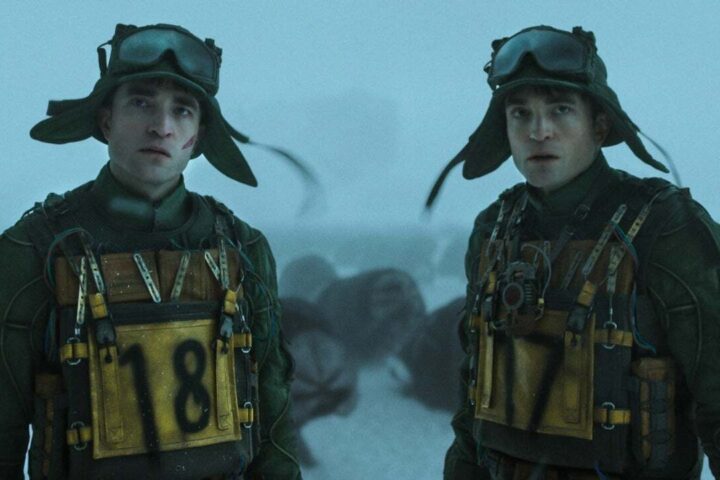A clunky fusion of sci-fi fiction and political documentary, Asif Kapadia’s 2073 shakes us into submission via a series of cursory rundowns of crumbling democracies, the weaponization of social media, rising xenophobia, and more. In summarily covering so many global crises, Kapadia’s film plays less like a galvanizing call to action than a shapeless and hollow piece of agitprop that inspires only the same paralyzing sense of fear and hopelessness that it accuses demagogues around the world of provoking in people.
Kapadia and editor Chris King have detailed the biographies of famous figures in compelling, well-structured documentaries—Dominic Senna in 2010’s Senna and Amy Winehouse in 2015’s Amy. By contrast, 2073, whose only coherent thesis is the belief that the world is going to shit, is dubious and throws structure to the wind. It tries to cover so much material that even the most abhorrent of tragedies are somewhat diminished by the constant onslaught of horrors shown on screen. So broad are the film’s targets that it soon becomes akin to watching the worst bits of the news with your eyes permanently pried open like Alex in A Clockwork Orange.
Kapadia attempts to touch on far too much material for one film, let alone one that, before the credits roll, comes in at under 80 minutes. Couple that with the narrative scaffolding—a loose retelling of Chris Marker’s La Jetée—that wastes Samantha Morton and serves as little more than a recurring scold to the audience and you end up with a film that leaves you with a deadening sensation akin to that which grips you after spending too much time doomscrolling.
The bit about the Uyghur people in China sheds light on a situation that’s rarely discussed in Western media, but like everything else in the film, Kapadia rushes past it, and in this case he simply connects it to other forms of anti-Muslim discrimination happening around the world. And even similar connections like these that are made throughout the film are presented simply as a trend. There’s no analysis about the root causes of these events or overarching theory about how they’ve come about, aside from a broadly drawn portrait of the global connection between reactionary political leaders and tech billionaires. One may disagree with the conclusions that filmmakers like Adam Curtis or Michael Moore come to, but at least they have a point of view.
Kapadia makes a point of showing billionaires and the cohorts they’ve placed in their various think tanks discussing the importance of emotions over ideas, and yet 2073 does the very same thing. Employing a pulsating score that underlines the pervasive sense of anxiety and fear that the film evokes, 2073 merely doubles down on its despairing mosaic of a broken world. Ultimately, it’s little more than tragedy porn that has a lot more in common with those SPCA commercials set to Sarah MacLachlan’s “Angel” than it does to any of the more profound or probing political docs of recent years. And at least the former ends with an 800 number to call rather than a useless platitude from a fictional future: “It may not be too late for you.”
Since 2001, we've brought you uncompromising, candid takes on the world of film, music, television, video games, theater, and more. Independently owned and operated publications like Slant have been hit hard in recent years, but we’re committed to keeping our content free and accessible—meaning no paywalls or fees.
If you like what we do, please consider subscribing to our Patreon or making a donation.






